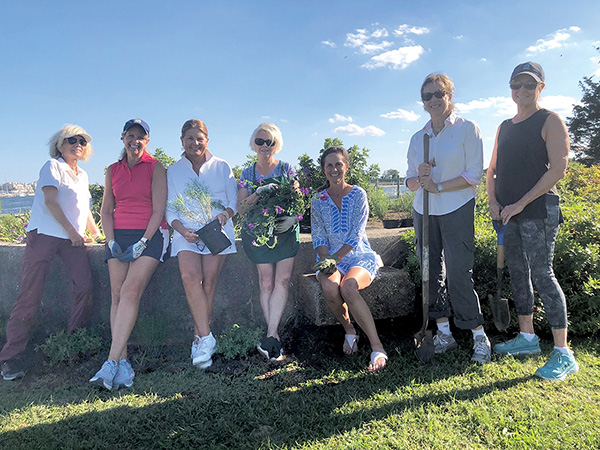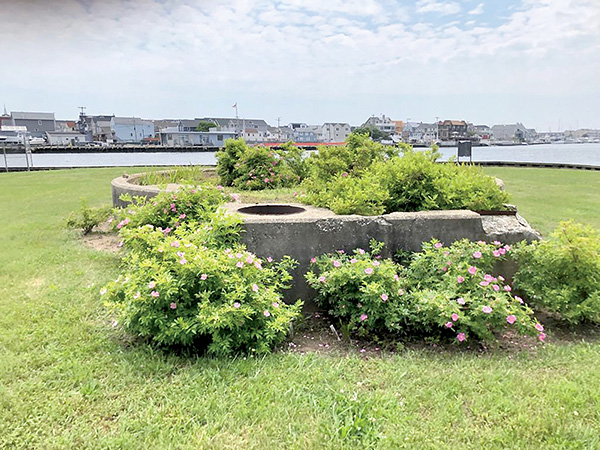By Sarah Rossbach Fleming

Members of the Rumson Garden Club are working to determine which plants might survive climate change.
RUMSON – With the United Nations Climate Change Conference taking place this week in Glasgow, the subject may be on many minds. Rumson Garden Club (RGC), a member club of the Garden Club of America (GCA), is focusing on sustainability to help combat the issue.
After the town was hit hard by Super Storm Sandy in 2012, RGC asked what native plants would survive with increased temperatures and fiercer storms of climate change and what plants native to southern regions might become the area’s new native species. So the club applied for and received a $500 grant from the GCA’s Partners4Plants (P4P) program to plant Southern native species to determine what plants might survive. The Climate Change Experiment originally was part of a GCA P4P Habitat Restoration grant on the Sandy Hook Unit of Gateway National Recreation Area, but the park raised concerns that Southern native species might become Northern invasives. RGC reached out to Tom Rogers, Rumson municipal clerk and administrator who, with Councilwoman Laura Atwell, suggested the experiment be relocated at the sewer pump station.
As a result, RGC oversees both the Sandy Hook restoration project and the Rumson Climate Change Experiment. The experiment began in 2019 and includes Southern natives as well as a control plant (rosa carolina) that thrives locally. The club worked with New Jersey environmental and agricultural experts to identify suitable southern native species that in the past would not have survived the harsh winter climate. The first Southern native (Louisiana iris) has survived, but is less hardy than the control plant. This fall, RGC members planted milkweed (asclepias verticillata), aster (aster oblongifolius “October Sky”) and verbena – a native of South America. The club’s approach is survival of the fittest, so no watering or soil fertilizing takes place. The plants’ ultimate survival is bittersweet, as their perennial beauty can be enjoyed by neighbors, but their thriving is a further sign of climate change.
An unexpected benefit for the club is partnering with Rumson’s Environmental Commission (REC), which has embraced the experiment and supplied high school members of its Junior Green Team to weed and till the soil enabling easier planting. As the experimental planting winds down next spring, RGC and REC will continue to collaborate. The Climate Change Experiment has enhanced a starkly unattractive site and perhaps identified the area’s new natives. As Atwell said, “The project is a win for Rumson Garden Club, a win for the Environmental Commission and a win for the town.”
The article originally appeared in the November 4 – 10, 2021 print edition of The Two River Times.















